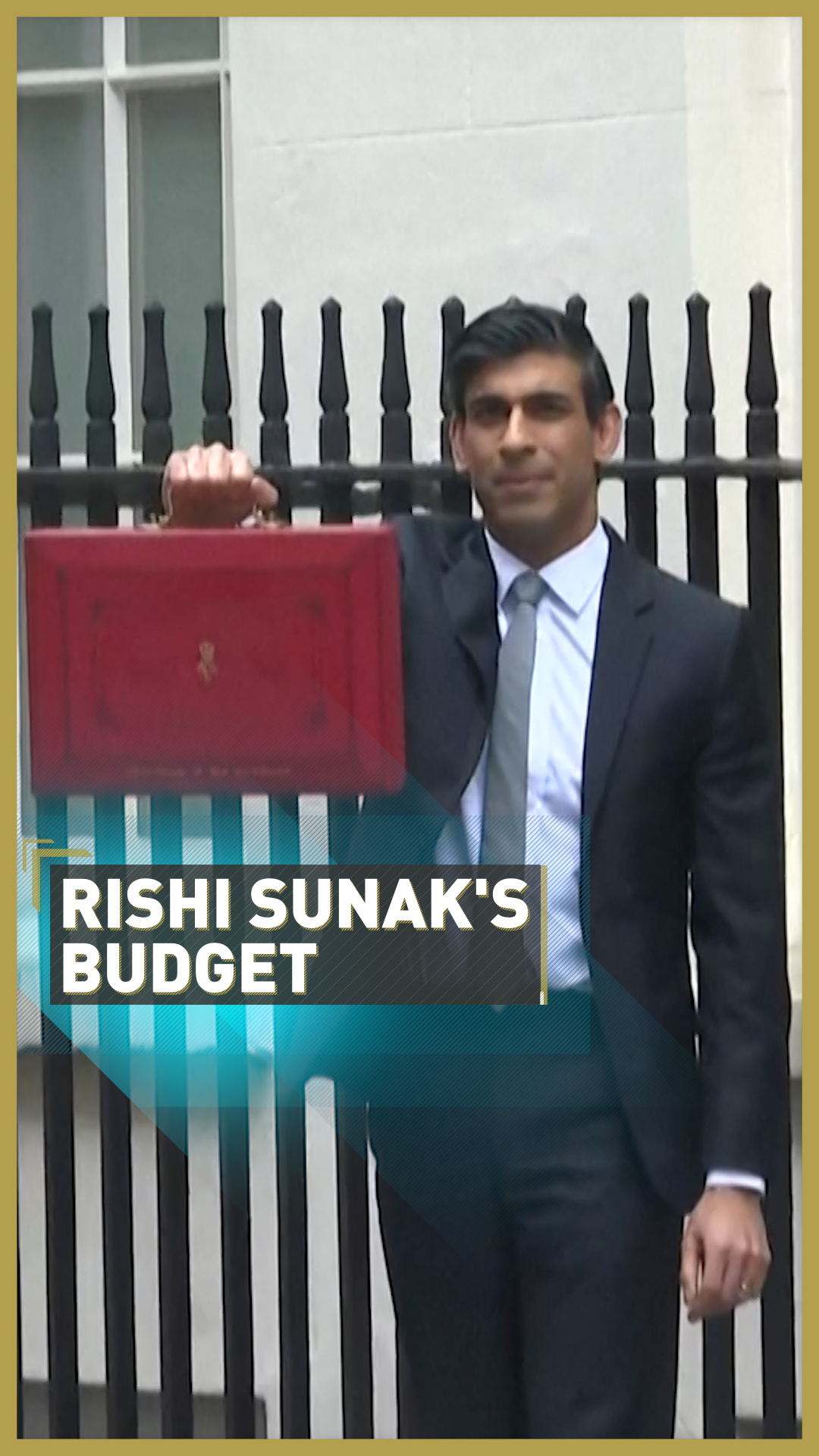02:24

The UK's chief finance minister, Chancellor Rishi Sunak, has announced an extension of his emergency aid programs to see the country's economy through its current coronavirus lockdown.
In his annual budget speech he coupled the help with a tax rise for many large businesses as he also began to focus on fixing the public finances.
Britain has suffered the biggest COVID-19 death toll in Europe and one of the heaviest economic downturns. Its economy – the world's sixth largest – shrank by 10 percent last year, its worst slump in 300 years.
READ MORE
Chinese academic warns over racism in UK
Meteor sighting stuns stargazers
Vaccines not only answer, warns WHO
In his opening remarks, Sunak, a former Goldman Sachs banker, said the UK's economy would bounce back more quickly than expected and that gross domestic product (GDP) was expected to grow by 4 percent this year and 7.3 percent next year, according to the UK's Office for Budget Responsibility (OBR).
In a break from decades of Conservative Party fiscal orthodoxy and despite the country's economic woes, Sunak said government support measures over the crisis totaled some 400 billion pounds ($558 billion).
Here are the key points:
Furlough
Sunak extended his centerpiece furlough program, which covers about one in five private-sector employees, until the end of September. The scheme, which pays businesses to keep employing people, has staved off widespread job losses and will be adapted as the economy reopens.
Employees eligible for the scheme will continue to receive 80 percent of wages, while employers will have to start paying 10 percent of the hours their staff do not work in July, rising to 20 percent in August and September.
The scheme had been due to expire after 13 months at the end of April, when it will have cost an estimated 70 billion pounds ($97.7 billion).
Corporation tax
Sunak announced an increase to Britain's relatively low corporation tax rate in an attempt to fill holes in the budget, from 19 percent now to 25 percent in 2023.
He stressed that the tax would only impact those companies making a profit and will come into place when the OBR judges the economy to be recovering.
The policy has been criticized by the opposition Labour Party, despite it being close to one of its key policies in the 2019 general election.
Welfare
The 20 pounds ($28) a week increase to the UK's blanket social security payment, will be extended for another six months. However, it will be paid as a one-off payment of 500 pounds ($698) due to the nature of the system, according to Sunak.
The self-employment income support scheme has also been extended, stated Sunak. The fourth grant will cover February to April and will worth 80 percent of average trading profits up to 7,500 pounds ($10,468).

Chancellor Rishi Sunak poses in front of his Downing Street residence with the traditional red briefcase containing the details of the UK's budget. /AP/Kirsty Wigglesworth.
Chancellor Rishi Sunak poses in front of his Downing Street residence with the traditional red briefcase containing the details of the UK's budget. /AP/Kirsty Wigglesworth.
Personal taxes
There will be no changes to income tax, national insurance or VAT and Sunak promised personal tax allowances will be frozen until 2026.
The basic allowance will go up to and stay at 12,570 pounds ($17,565) as planned and the higher rate threshold will rise to 50,270 pounds ($70,245). While not a tax rate, given rising inflation and wages, the policy should result in increased tax receipts for the UK Treasury over the next few years.
'Freeports'
"Freeports," which allow imports to avoid tariffs as long as the goods are exported internationally rather than sent elsewhere in the UK, will be set up across the country.
Although permitted under EU rules, Sunak claimed Britain was able to push ahead with the policy due to Brexit.
The freeports will be dotted around England: the East Midlands airport, Humber, Felixstowe and Harwich on the east coast, the Liverpool city area in the North West region, Teesside in the North East and Plymouth, the Solent and the Thames Estuary in the south and southwest of the country.
Criticisms
The budget represents yet another significant break from the austerity policies introduced by former Conservative Prime Minister David Cameron following the 2008 Global Financial Crisis. Despite this, Sunak has received very little criticism from the same Conservative members of parliament (MPs) who backed those measures.
Former Conservative health minister Jeremy Hunt praised Sunak but tweeted that the budget contains little support for the "bruised and demoralized" social care sector that suffered in the pandemic.
Speaking after Sunak, Labour leader Keir Starmer attacked the budget for not addressing the country's public health service, the NHS, which was stretched close to breaking point during the pandemic and for a lack of green investments. Other Labour MPs attacked Sunak's plan for containing no wage rises for health workers.

